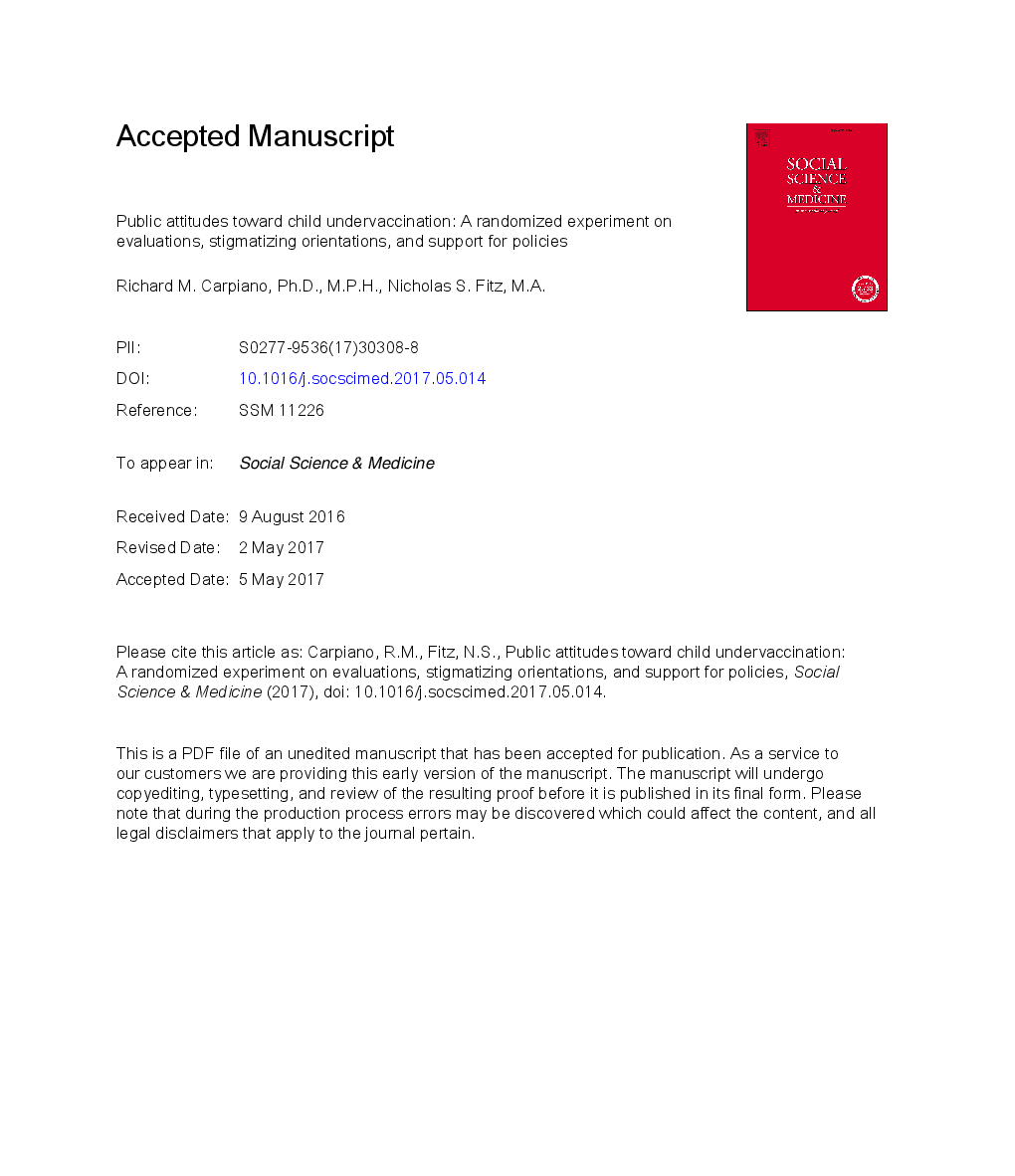ترجمه فارسی عنوان مقاله
نگرش عمومی نسبت به ناباروری کودک: یک آزمایش تصادفی بر روی ارزیابی ها، گرایش های گوناگون و حمایت از سیاست ها
عنوان انگلیسی
Public attitudes toward child undervaccination: A randomized experiment on evaluations, stigmatizing orientations, and support for policies
| کد مقاله | سال انتشار | تعداد صفحات مقاله انگلیسی |
|---|---|---|
| 153593 | 2017 | 46 صفحه PDF |
منبع

Publisher : Elsevier - Science Direct (الزویر - ساینس دایرکت)
Journal : Social Science & Medicine, Volume 185, July 2017, Pages 127-136
ترجمه کلمات کلیدی
ایالات متحده، واکسیناسیون، دلمشغولی واکسن، استقامت، نگرش عمومی، سیاست، آزمایش جاسازی شده آزمایش ویگنت،
کلمات کلیدی انگلیسی
United States; Vaccinations; Vaccine hesitancy; Stigma; Public attitudes; Policy; Survey-embedded experiment; Vignette experiment;

